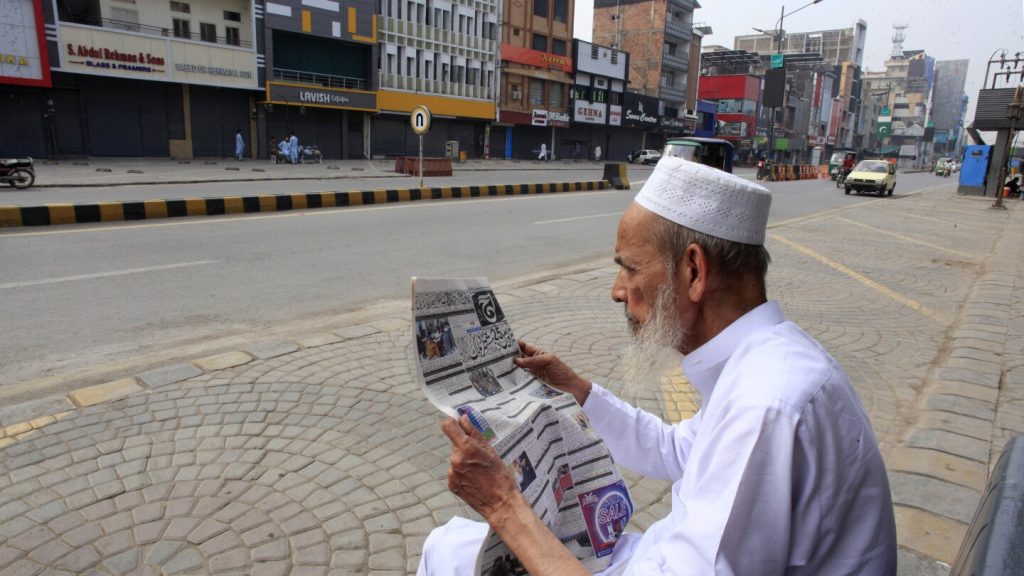Protests have been ongoing in Pakistan for weeks following the government’s decision to raise electricity prices and impose new taxes on shop owners. The strike called by Naeem-ur-Rehman, the head of the religious Jamaat-e-Islami Pakistan party, has gained support from various traders’ unions and associations. Many shops in major cities and urban areas were closed on Wednesday, with the exception of pharmacies and grocery stores selling essential items. The aim of the strike is to pressure the government into reversing the recent increases in power bills and to address the controversial tax introduced after discussions with the International Monetary Fund (IMF).
The IMF recently approved a new $7 billion loan for Pakistan, with the aim of assisting the country in stabilizing its economy and managing its debts through significant bailouts. This deal marked Pakistan’s latest engagement with the global lender in seeking financial support. The decision to raise electricity prices and impose new taxes is seen as a direct result of the agreement with the IMF, which is pushing for Pakistan to broaden its tax base. The strike by traders is a manifestation of the widespread discontent and frustration among the public over the rising cost of living and the impact of these economic measures on their livelihoods.
Despite the strike being observed in most major cities, there were reports of partial strikes in some provinces like Khyber Pakhtunkhwa and Balochistan, where some stores remained open while others closed. The strike leader, Kashif Chaudhry, emphasized that essential businesses such as pharmacies and grocery stores were allowed to remain open to avoid inconveniencing the general public. The closure of shops in cities like Islamabad, Rawalpindi, Lahore, and Karachi highlights the significant impact of the strike on commercial activity and showcases the unified stance of traders in demanding a reversal of the recent economic decisions.
The strike has further intensified the existing tensions between the government and various sectors of society, particularly traders and small business owners who are bearing the brunt of the economic policies implemented in the wake of the IMF deal. The government led by Prime Minister Shehbaz Sharif is facing mounting pressure to address the concerns raised by the traders and find a solution to the rising discontent. The closure of businesses and the widespread protests indicate a growing sense of frustration and disillusionment among the public, who are feeling the direct impact of the government’s economic reforms on their daily lives.
As the strike continues to disrupt commercial activities and draw attention to the grievances of the traders, the government is faced with a challenging task of balancing the demands of the IMF with the needs of its citizens. The ongoing protests reflect the deep-seated frustration among the populace over the deteriorating economic conditions and the lack of relief measures from the government. The strike serves as a stark reminder of the power of collective action in holding the authorities accountable and demanding change in economic policies that directly affect the livelihoods of the people. The coming days will likely see further developments as the government grapples with the fallout from the strike and seeks to address the concerns raised by the protesting traders.


